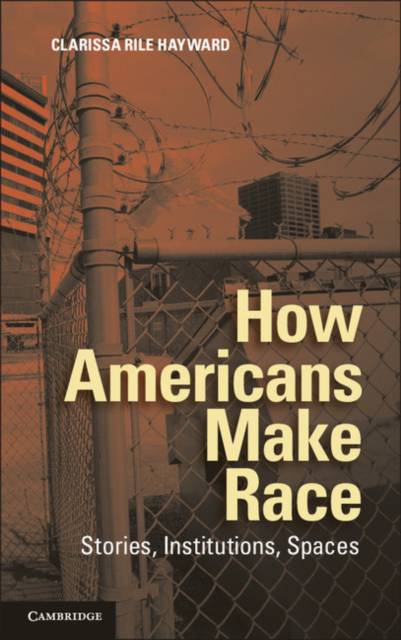
- Afhalen na 1 uur in een winkel met voorraad
- Gratis thuislevering in België vanaf € 30
- Ruim aanbod met 7 miljoen producten
- Afhalen na 1 uur in een winkel met voorraad
- Gratis thuislevering in België vanaf € 30
- Ruim aanbod met 7 miljoen producten
Zoeken
€ 83,95
+ 167 punten
Uitvoering
Omschrijving
How do people produce and reproduce identities? In How Americans Make Race, Clarissa Rile Hayward challenges what is sometimes called the "narrative identity thesis" the idea that people produce and reproduce identities as stories. Identities have greater staying power than one would expect them to have if they were purely and simply narrative constructions, she argues, because people institutionalize identity-stories, building them into laws, rules, and other institutions that give social actors incentives to perform their identities well, and because they objectify identity-stories, building them into material forms that actors experience with their bodies. Drawing on in-depth historical analyses of the development of racialized identities and spaces in the twentieth-century United States, and also on life-narratives collected from people who live in racialized urban and suburban spaces, Hayward shows how the institutionalization and objectification of racial identity-stories enables their practical reproduction, lending them resilience in the face of challenge and critique.
Specificaties
Betrokkenen
- Auteur(s):
- Uitgeverij:
Inhoud
- Aantal bladzijden:
- 220
- Taal:
- Engels
Eigenschappen
- Productcode (EAN):
- 9781107043893
- Verschijningsdatum:
- 31/10/2013
- Uitvoering:
- Hardcover
- Formaat:
- Genaaid
- Afmetingen:
- 152 mm x 231 mm
- Gewicht:
- 408 g

Alleen bij Standaard Boekhandel
+ 167 punten op je klantenkaart van Standaard Boekhandel
Beoordelingen
We publiceren alleen reviews die voldoen aan de voorwaarden voor reviews. Bekijk onze voorwaarden voor reviews.











